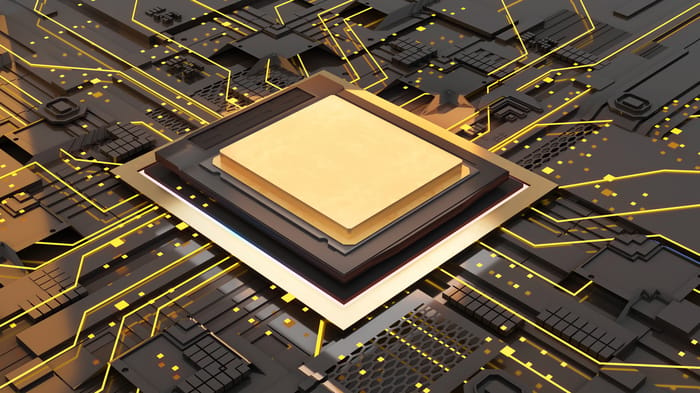
Connects decision-makers and solutions creators to what's next in quantum computing
Enter Quantum’s Top 10 Most Read Stories of 2024Enter Quantum’s Top 10 Most Read Stories of 2024
Quantum computing makes advances, post-quantum security is a key driver

Quantum computing and other quantum technologies have taken great strides toward real-world useful applications in 2024.
The year was marked by huge advances in processor power and error correction, plus the advantages quantum could offer secure communications. Quantum position, navigation and timing technology also came to the fore.
China flexed its quantum muscles, bringing its next-generation platform online. And in the year NIST released its post-quantum encryption standards, the risks posed by quantum computing to encrypted data are conversely helping raise awareness of the opportunities it offers businesses.
Here are Enter Quantum’s top 10 stories of 2024, setting the scene for 2025, which the United Nations has proclaimed the International Year of Quantum Science and Technology.
Nvidia, IonQ Demonstrate Hybrid Quantum Systems
In November, IonQ and Nvdia demonstrated an end-to-end application workflow that combines IonQ’s quantum computing hardware with Nvidia’s CUDA-Q open-source development platform.
The application, showcased at the SC24 high-performance computing conference, uses a hybrid quantum-classical approach to calculate the electronic structure of molecules.
Boeing Carries Out First Quantum Navigation Flight Test
In August, Boeing carried out a four-hour flight test using a quantum navigation system instead of GPS, the first time the technology was used on an aircraft to produce real-time navigation data.
Quantum technology offers a potential solution for navigating in a GPS-deprived environment, which could be caused by service outages, or blocking or spoofing by an adversary.
IBM Launches Its Most Powerful Quantum Computer
IBM unveiled new quantum hardware and software capabilities that expand the scale, speed and accuracy of quantum algorithms at its inaugural Quantum Developers Conference in November.
These developments are in line with the ambitions set out in IBM's quantum development roadmap targeting quantum utility, with a goal of achieving error-corrected quantum systems by 2029.
China’s Third-Generation Quantum Computer Comes Online
In January, Origin Quantum Computing Technology, based in Hefei, China, put its third-generation Origin Wukong quantum computer into operation.
It features the 72-qubit Wukong superconducting quantum chip, developed entirely in China. It has 198 qubits in total, comprising 72 computational qubits and 126 coupler qubits.
JPMorgan Chase Implements Quantum-Secured Network
JPMorgan Chase researchers announced successfully implemented a high-speed, quantum-secured crypto-agile network (Q-CAN), connecting two data centers over existing fiber optic cable.
The demonstration in May was conducted in an air-gapped environment over 29 miles of deployed telecom fiber across Singapore and achieved 45 days of continuous operation.
China “Ahead in Quantum” Despite Funding Blocks
A U.S. think tank warned in February that the U.S. risks falling behind China in quantum technology advancements despite moves to block access to funding such as the Chips and Science Act.
Quantum technologies are widely acknowledged as presenting both a strategic opportunity and a threat. As it matures, quantum computing could enable access to sensitive encrypted data. Other quantum technologies are used in military and national security applications including sensing and navigation.
Samsung Launches Smartphone with Quantum Chip for Security
In September, Samsung launched the Galaxy Quantum 5, a variant of its Galaxy A55 smartphone that features a quantum cybersecurity chip to make transactions such as online banking more secure.
The new model was developed in partnership with quantum cybersecurity company ID Quantique (IDQ) and network operator SK Telecom and is only available in the South Korean market.
Military-Grade Encryption Broken by Quantum Computer
Chinese researchers said in October that they had made significant inroads in using a current quantum computer to break encryption algorithms used in banking and defense.
A team led by Wang Chao from Shanghai University used a D-Wave Advantage quantum computer to attack encryption algorithms such as Present, Gift-64 and Rectangle.
Lawmakers Call for DOD Quantum Center of Excellence
In May, House lawmakers called for a U.S. Government quantum center of excellence for the Department of Defense (DOD).
Members of the House Armed Services Subcommittee on Cyber Innovative Technologies and Information Systems wanted the proposed hub to focus on military-specific applications for quantum computing.
Quantum Computing ‘Making Progress Faster Than Expected’
There was positive news in August as an industry report found that quantum computing technology is developing faster than expected and is set to outperform classical computing in five years.
QuEra, a quantum computing company based in Boston surveyed 920 international quantum computing academics, scientists and professionals for its report, The Current and Future State of Quantum Computing.
About the Author
You May Also Like
.png?width=100&auto=webp&quality=80&disable=upscale)
.png?width=400&auto=webp&quality=80&disable=upscale)




